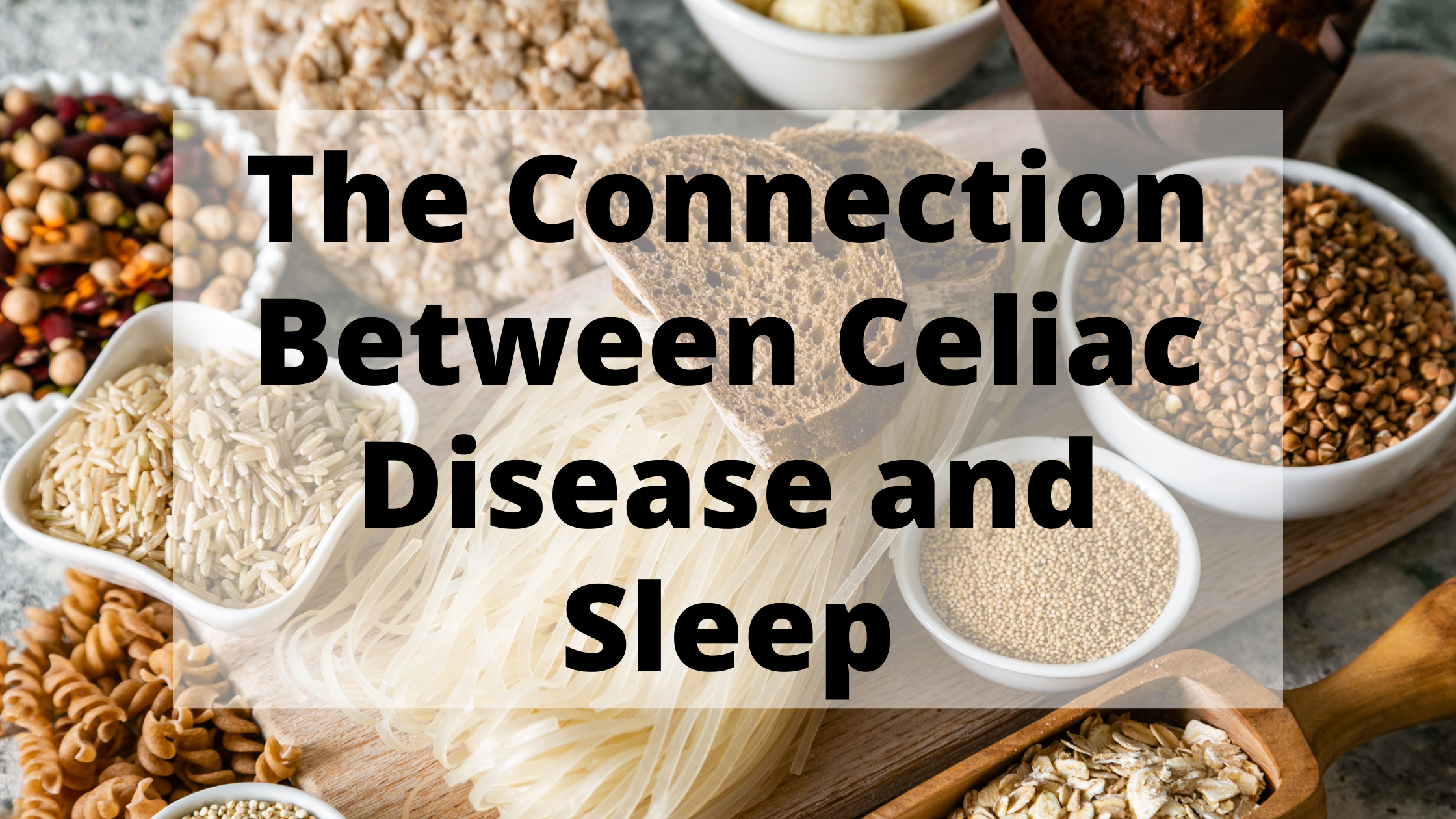Gluten allergy, also known as Celiac disease, is the result of the body's inability to process gluten and an allergic reaction that takes place in the bowel. A gluten allergy is a genetic disorder that affects the way the body processes gluten. Gluten is a molecule found in wheat, so anything that uses flower or any other grain source is going to have gluten in it. Therefore, if you have celiac disease, then you're going to feel major discomfort every time you consume something that contains gluten. Find out more about the connection between gluten and what it could do to your sleep.
Recognizing Gluten Disorders
Gluten sensitivity or allergies are recognized by a variety of symptoms after exposure to gluten. Gluten allergies are genetic which means that there has to be gluten allergies somewhere else in the family. In addition to genetics, exposure to gluten is necessary as the body will respond by inflaming the bowels and creating major discomfort in the lower abdomen.
If you or your physician suspect gluten disorders, then it's necessary to do a blood test and potentially even an endoscopic exam called an esophagogastroduodenoscopy (EGD) where they can examine any physical damages caused by exposure to gluten disorders.
Aside from gastrointestinal disorders, fatigue has also become a newly recognized, common symptom of celiac disease.
Celiac Disease and Sleep
Even though many of these people have fatigue, people with celiac and gluten sensitivity problems report trouble going to sleep. These problems are very common before people are diagnosed (when they are still consuming gluten, and therefore having an allergic reaction). However, even after diagnosis and lifestyle changes, these problems continue to persist.
Some with celiac disease seem to need more sleep than they're getting, some requiring 14 or 16 hours a day where they still don't feel rested.
The problem does not seem to stem from malabsorption, but the link is still hard to understand. One theory was that malnutrition and nutrient deficiencies linked to malabsorption by damaged intestinal cells. However, that theory was not well supported by sleep problems persisting in those whose intestinal walls have healed.
Sleep disorders may be better linked to depression, anxiety and fatigue in celiacs, however these sleep disorders could have been present regardless of diarrhea or other digestive celiac symptoms. There are some sleep problems related to accidentally consuming gluten after adopting a gluten-free diet and having frequent awakenings, poor quality sleep and nightmares.
Improving sleep with celiac
If you are diagnosed with celiac disease and find yourself having sleep trouble, there are a few things you can do to help overcome the symptoms or complications associated with celiac disease.
You should get rid of as much gluten as possible. Some people react to very low levels of gluten found in gluten-free-labeled foods. This is because in order to be labeled as gluten free, they can still have trace amounts of gluten. By removing all processed foods from your diet and only sticking with whole, unprocessed foods you have better control over what you're eating.
Create a better sleeping environment for yourself. These guidelines include removing electronics from the sleeping area, making sure it's completely dark, and turning down the temperature for optimal sleep.
Last, but not least, seek help. If you are still having trouble with your celiac allergies, then it may be time to reach out to a professional. Also, if you are having trouble with sleep, then it may be time to talk with a doctor. You can click the orange button below to take a free online sleep test and talk with a sleep professional.
https://www.verywellhealth.com/gluten-and-sleep-562316


